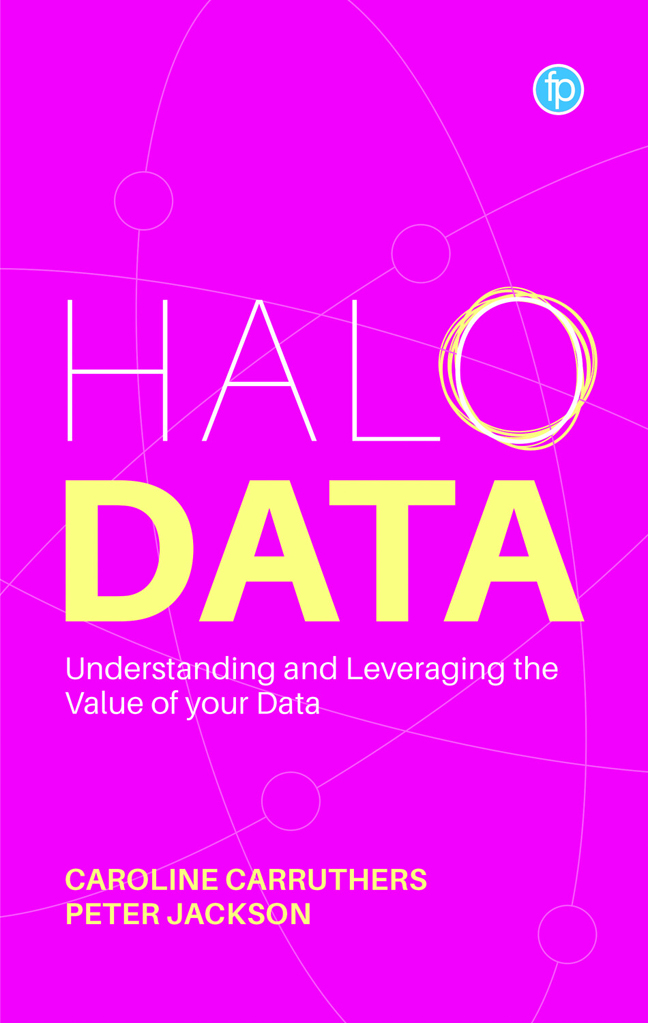Book contents
- Frontmatter
- Dedication
- Contents
- Figures and Tables
- About the Authors
- Acknowledgements
- Introduction
- 1 Who Owns the Definitions and Terms about Data?
- 2 What is Metadata?
- 3 Other Ideas of Data Value and Monetisation
- 4 Value from a Different Source
- 5 Hello Halo Data
- 6 Getting to Know Halo Data
- 7 Early Examples of Halo Data Approaches
- 8 Halo Data and Data Ethics
- 9 Halo Data Framework
- 10 Halo Data Applied Risk Assessment, Regulation, Customer, the Citizen
- 11 Halo Data and Storytelling
- Conclusion
- Index
Introduction
Published online by Cambridge University Press: 17 December 2023
- Frontmatter
- Dedication
- Contents
- Figures and Tables
- About the Authors
- Acknowledgements
- Introduction
- 1 Who Owns the Definitions and Terms about Data?
- 2 What is Metadata?
- 3 Other Ideas of Data Value and Monetisation
- 4 Value from a Different Source
- 5 Hello Halo Data
- 6 Getting to Know Halo Data
- 7 Early Examples of Halo Data Approaches
- 8 Halo Data and Data Ethics
- 9 Halo Data Framework
- 10 Halo Data Applied Risk Assessment, Regulation, Customer, the Citizen
- 11 Halo Data and Storytelling
- Conclusion
- Index
Summary
Ever since the mathematician Clive Humby coined the phrase ‘Data is the new oil’ in 2006, we have all become a bit obsessed with what data is ‘like’ so as to sell its virtues, to convince more people to be data cheerleaders and work with data as an asset. We have seen the phrase used on numerous occasions: world leaders, business leaders and publications worldwide have picked it up and acted as if it was the most important thing that Humby said. Michael Palmer, writing a blog post in November 2006, stated: ‘Data is just like crude. It's valuable, but if unrefined it cannot really be used. It has to be changed into gas, plastic, chemicals, etc. to create a valuable entity that drives profitable activity; so must data be broken down, analyzed for it to have value’ (https://ana.blogs.com/maestros/2006/11/data_is_the_new.html).
The point to be understood is that data in its raw form doesn't really do very much. Humby's phrase also portrays that data can be used in many different ways and can be turned into a multitude of different and varied products for us to get some value from it. It sits there full of potential, waiting for us to refine, clean, link, structure and analyse it; basically to unlock it so that we can turn it into a model for predicting when extreme weather will affect us, or how to cope with spikes in demand in our medical services, or how to predict customer or citizen behaviour.
The phrase also highlights that oil and data have some attributes in common. There may be some value in taking our understanding of how we use oil and applying it to data. We can look at how oil as an asset is treated and draw useful parallels for how we can treat data. From understanding what stages oil goes through and how it is treated, we can move on to thinking about how the same principle can be applied to data and the processes data needs to go through in order to be useful; in other words, the refining process, understanding what it is going to be used for, the preparation phase and so on. The words also bring to mind the engineering and the energy required to convert oil into something useful (think about the complexity and scale of an oil refinery).
- Type
- Chapter
- Information
- Halo DataUnderstanding and Leveraging the Value of your Data, pp. xvii - xxiiPublisher: FacetPrint publication year: 2023

